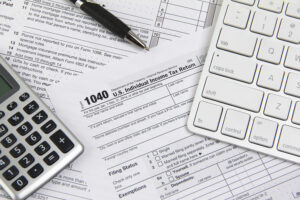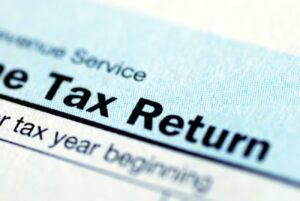Contact an Idaho Falls Tax Prep specialist
 Taxes are a part of the reality of life, and Idaho Falls is no exception. Like Idaho Falls citizens, Idaho Falls tax preparers have to deal with taxes as well.
Taxes are a part of the reality of life, and Idaho Falls is no exception. Like Idaho Falls citizens, Idaho Falls tax preparers have to deal with taxes as well.
Tax preparation in Idaho Falls is an accounting task that must be done every year by millions of self-employed individuals and businesses working in all industries, from mom & pop shops to mid-sized corporations. If you need someone to complete your tax forms for you, you will find Idaho Falls’ best tax prep service here on our list.
Idaho Falls tax prep makes it possible for you to get more money back from the government by lowering your taxable income through legal methods such as deductions and expenses. It can also help protect yourself from identity theft or filing mistakes that may come back to haunt you when the IRS—the ultimate taxing authority—catches on.
What Is Involved in Tax Preparation?
Tax preparation is the act of preparing your tax returns, and using the help of a tax preparer is the best way to go. He or she can help by:
- Compiling all statements, receipts, and information pertaining to your finances over the past year in order to fill out government forms that determine whether or not you are eligible for certain benefits (such as social security);
- Discovering how much money you owe (in the form of taxes); and
- Seeing if there were any irregularities with your previous year’s filing.
If your paperwork is incorrect or incomplete due to human error, accounting errors, or an oversight on your part, then it will lead to complications and tax consequences if the IRS audits your account. A tax liability can also bring the IRS down on you.
An Idaho Falls tax professional can help correct these mistakes.
Tax preparation also involves reducing your taxable income as much as possible by taking advantage of tax write-offs (expenses that the IRS won’t tax you on).
 Common examples include:
Common examples include:
- Unreimbursed business expenses,
- Educational costs,
- Traveling costs, and
- Charitable contributions.
An Idaho Falls tax professional can help find additional ways to cut your taxable income.
Less common examples of tax write-offs include:
- Child care costs,
- Student loan interest expenses, and
- Some medical expenses.
An Idaho Falls tax preparer will know which additional deductions you are eligible for.
Tax preparation involves filing Idaho state taxes as well as your federal taxes.
Idaho tax law has many differences from federal law, so an Idaho Falls tax professional can ensure that you file all of these returns correctly, while saving yourself the headache of dealing with numerous forms in different formats.
Not only do Idaho Falls accountants offer tax preparation services, but they also offer financial planning services to help you save more money on your taxes next year.
For example, they might suggest putting more money into retirement accounts or getting insurance policies to optimize your benefits. The goal is always to reduce income and provide a better return—in short, getting the most out of this process that you must legally engage in.
Idaho Falls Idaho tax services can save you valuable time and a lot of money by doing all the hard work for you before submitting your returns to the IRS.
An Idaho Falls tax preparer can help maximize your tax refund or minimize any potential penalties that may result from an audit by reducing your taxable income as much as possible.
The less you have to pay to the IRS, and the more problems you can avoid with them, the better—this is what tax preparation by a professional tax preparer accomplishes.
How You Can Get the Most Out of Tax Preparation
A professional tax preparer can help you get ready for tax season so that you are not overwhelmed by all of the paperwork and esoteric lingo involved. An Idaho Falls tax preparer is an experienced professional who has dealt with thousands of different personal situations and they keep up to date on the ever changing tax laws in Idaho and the Federal government.
By taking advantage of Idaho Falls ID tax preparation services, you will reduce your chances of an audit because the IRS is likely to spot any mistakes or errors themselves before sending out a notice saying that there has been an error in your return.
How You Can Reduce Your Taxable Income

Besides Idaho Falls Idaho tax preparation services, there are a couple of other factors which you can use to reduce your taxable income over the course of the year.
You can do this by either going out of your way to reduce it or to passively reduce it throughout the year.
Passive Idaho Falls Idaho tax write offs are the ones which you don’t necessarily need to go out of your way for, but rather simply take advantage because you have the right to do so.
Some examples of these Idaho Falls Idaho tax write offs include:
1. Keeping your job-related costs low.
2. Taking all allowable Idaho deductions and credits.
3. Making steady contributions to retirement plans and accounts.
4. Contributing regularly to Health Savings Accounts (HSA).
5. Being careful about what you claim as a dependent.
6. Figuring out which of your possessions qualify for Idaho property tax deduction.
7. Knowing what can be deducted on your Idaho State taxes.
8. Knowing what is deductible on Idaho sales taxes.
9. Knowing how to successfully appeal your Idaho property tax assessment.
10. If you have a side hustle, using it to claim business deductions.
More active ways of reducing your taxable income include donating to charities, getting a credit for higher education, or utilizing Idaho’s Homestead Tax Exemption.
Employees, Business Owners, & Independent Contractors Need to File Taxes
Employees
If you work as an Idaho Falls employee, you’ll need to file a federal income tax return as well as an Idaho state income tax return. Idaho will also tax the wages of employees who work in Idaho but live elsewhere.
Employees will need to file a W-4 form with their employer to indicate how much Idaho state income tax should be withheld from each paycheck. In fact, Idaho residents are responsible for paying Idaho State taxes on all income earned within the state’s borders. Even if you happen to leave your Idaho job and become an out-of-state resident, you’ll still need to continue filing Idaho State taxes until you’ve worked a complete tax year as a nonresident.
Independent Contractors
Independent contractors in Idaho Falls need to file a little bit differently. They will need to fill out a 1099, a document that proves your taxpayer identity and allows you to claim deductions on your income and business expenses. A W-9 is also required for independent contractors—this form is provided to the employer(s) of the independent contractor.
Renters
Idaho Falls renters must also file a separate Idaho tax return if they received rental income from property in Idaho or elsewhere during the previous tax year. This return must be filed even if no net profit was realized from those rental activities—however, losses can only be deducted against gains and cannot be used as an offset for other types of income like employment or business income.
Business Owners
Specific tax laws apply to Idaho Falls business owners as well. A sole proprietor must file Schedule C (Profit or Loss From Business) with their 1040 to report net profit and loss of the business. They also must file Schedule SE (Self-Employment Tax).
Frequently Asked Questions About Tax Preparation
How do I know if I need to file a tax return?

If you’re unsure whether or not to file your taxes, it may be best for you to err on the side of caution and do so. Even if there is no tax owed by an individual during a particular year because they have very little income, filing can still lead them toward getting their refund faster in future years when more money might come into play.
To get more specific information on who must file, check out IRS Publication 501. For most people, gross income is generally the main trigger for filing requirements. However, there are some exceptions to this rule depending on your age and marital status as well as other factors such as if you have dependents or children that can be claimed under tax law. As an example in 2020 a single individual younger than 65 was required to file taxes when their annual earnings reached $12400 while married couples were required at $24800 per year so long both spouses were also below retirement age of 65 years old.
What income am I required to pay taxes on?
The IRS defines income as money, property or services you receive in exchange for goods and/or labor. It’s taxable unless the law specifically exempts it—all taxable income must be reported on your taxes. Non-taxable items are still required to be disclosed if they’re given monetary value by federal standards (i.e., sale of securities).
Unearned income, like child support or Social Security benefits aren’t taxed because they’re not considered part of your paycheck. However you do pay federal and sometimes state tax on it. And some types of unearned income in Idaho Falls are subject to a lower capital gains rate rather than your normal tax rates.
What’s the best filing status for me?
Choosing a filing status can help you achieve tax savings. For example, the standard deduction for those who file as head of household is larger than that for single taxpayers and married filers with comparable incomes.
The IRS’s interactive tool uses six questions to determine your eligibility: How many days apart were you legally married? Did one spouse have any income last year? Do either or both spouses own real estate–including their primary residence(s)–jointly with someone other than their spouse (or former spouse)? Are all dependents claimed on this return also being claimed by another taxpayer? Were more half-days together spent at home caring after children under age 13 if born before 1990 or disabled dependent care expenses paid so one could work outside the home?
What qualifies as a dependent?
Dependents are the people you support and claim for tax breaks. By claiming a dependent, you can become eligible for the child tax credit and head-of-household status.
In order to claim a dependent, you must have one of the following:
- A qualifying child younger than 19 or under 24 if attending school full time. They cannot provide more than half their own support and they must live with you for more than half the year in order to be claimed as a dependent on your taxes. Or,
- A qualifying relative who has shared family ties with you or lives with you all year long while earning very little income from work where they are not self-employed. To qualify, these dependents can’t file joint tax returns except when claiming back refunds.
What is my tax bracket / tax rate?
If you want to know which tax bracket fits your income best, the IRS has created a seven-tier system. This means that there are specific ranges of incomes taxed at different rates and marginal rate is just one aspect associated with this relevant information.
Which tax form should I use?
Beginning with the 2018 tax year, a single Form 1040 replaced three previous forms—Forms 1040EZ and 1040A. The simplified form is half its size and uses a “building block” approach to simplify filing for individual federal income taxes in 2020.
Taxpayers may need additional schedules but all 150 million U.S taxpayers start on this same basic form.
Should I itemize or take the standard deduction?
Deductions reduce taxable income. You have a choice between taking a standard deduction or itemizing deductions. When you itemize, your deductible expenses will contribute to reducing the overall amount of tax owed on your annual earnings—but only if you choose this option instead of simply claiming the standard deduction each year.
Your Idaho Falls tax professionals financial services can help you decide on the best route to take here.
What’s the difference between a tax deduction and a tax credit?
Tax deductions can reduce the amount of income you pay taxes on, which in turn reduces your tax. Credits are a dollar-for-dollar reduction to how much money you owe back to the IRS.
What are some deductions / credits I can claim?
 Tax preparation fees,
Tax preparation fees,- Contributions to individual retirement arrangements,
- Up to $2,500 in student loan interest,
- 50% of self-employment taxes,
- Tuition,
- Some medical expenses,
- Business expenses,
- Health savings accounts (only if created via personal funds),
- And many other things.
Idaho Falls ID tax preparers can help you find all of the deductions and credits you are eligible for.
How do I file a tax return?
The IRS offers several ways to file your tax return. You can mail your tax return, e-file your tax return, or hire an Idaho Falls tax preparer to file the paperwork on your behalf.
How long will it take to get my tax refund?
If you e-file and have your tax refund directly deposited, most refunds are issued within 21 days. However if you file a paper return, it can take up to six weeks before receiving the money back. If claiming certain credits or deductions might delay your refund—check on the IRS website for their “Where’s My Refund?” tool which will give an estimated date of issuance as well as updates such as when they received all required information from both parties involved in filing said taxes.






